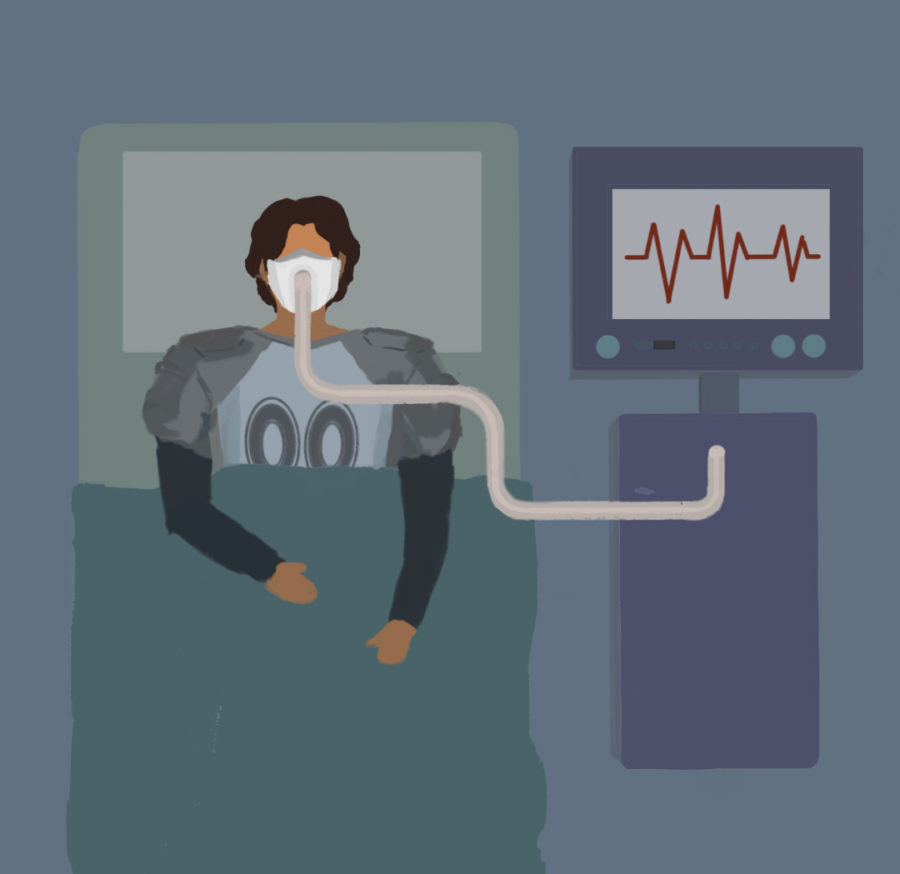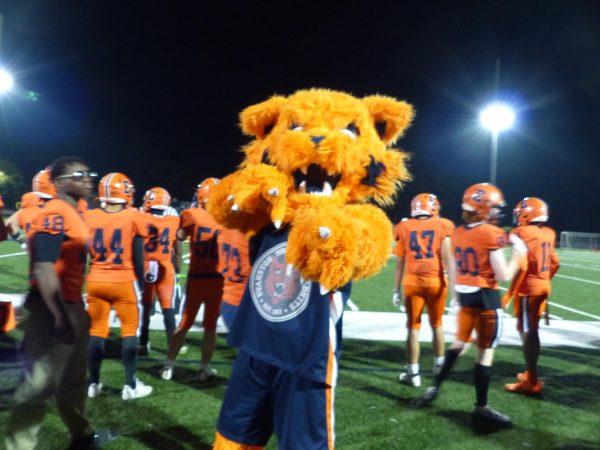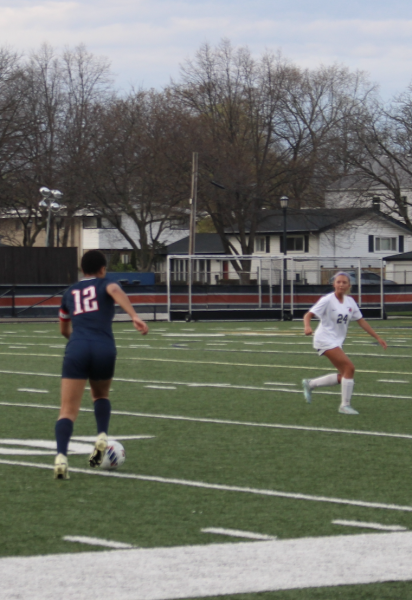Opinion | IHSA has an obligation to mandate vaccinations for student athletes
From day one of the pandemic, the IHSA has attempted to put the health and safety of students before athletic performance. Between mask mandates and canceling seasons all together, its efforts have likely prevented thousands of coronavirus cases. And now, with a reliable, FDA-approved vaccine and COVID-19 cases slowly stabilizing, teams are looking to finally return to what had once been “normal.” The only problem? Not all student athletes in Illinois are vaccinated; some don’t even plan to be any time soon. At this point, it’s up to the IHSA, and that group alone, to continue its dedication to safety by mandating vaccinations for student athletes.
Although young adults and teenagers are often less susceptible to the original strain of COVID-19, the new Delta variant has infected a concerning number of high schoolers. Yale Medicine, for instance, has found that people under 50 are two and a half times more likely to become infected with Delta. This, they reason, is predominantly due to the fact that adolescents are being vaccinated at much lower rates. Additionally, according to the Mayo Clinic, all COVID-19 vaccines are highly effective in preventing serious illness, hospitalization and death due to the Delta variant and decrease one’s risk of spreading the infection. Since the vaccines do all of those things reliably, the IHSA has a moral obligation to protect students and their families by mandating that athletes be vaccinated. They need to be pushed into recognizing that obligation.
“Playing sports seems so scary right now with Delta because we have to take off our masks,” says sophomore swimmer Eleanor Witte-McCarville. “I have three younger sisters at home that aren’t old enough to be vaccinated, and it worries me to put them at risk like this.”
As of Sep. 10, approximately 80.6 percent of eligible Evanston residents had been vaccinated against COVID-19. The Illinois Department of Public Health (IDPH) states that in Illinois as a whole, that statistic is only 62.9 percent. So, while Evanston has been doing an adequate job of keeping its citizens safe, other cities across the state have been less successful. By continuing high school sports without a vaccine mandate, the IHSA is exposing students in highly vaccinated communities like Evanston to areas of Illinois where the situation is not as stable.
Sophomore lacrosse player and cross-country runner Bridget Coutre is concerned about the uncertainty of her opponent’s vaccination status.
“While I’m pretty confident in the fact that all my teammates are vaccinated, there’s no way of telling what’s going on for the other teams,” Coutre notes. “An entire team could be unvaccinated and positive for COVID-19 without us knowing.”
Coutre’s point continues to ring true as the more transmissible Delta variant rises in significance. Because of the variant, recently, COVID-19 cases have been spiking, and sporting events are once again hotspots for outbreaks. During the Tokyo Olympics—an event without a vaccine mandate—many athletes had to withdraw from competition following positive tests. This was in spite of rigorous health policies that were supposed to keep athletes safe.
And, as a matter of fact, on Aug. 19, Tokyo reported 5,534 new cases of COVID-19: the most the city ever had in a day since the pandemic started. Following the Olympics in Tokyo, hospital beds have been filling up and businesses have been shutting down due to COVID-19 spread. This is in large part because the International Olympic Committee (IOC) did not mandate athletes or spectators to be vaccinated. It’s crucial to the health and safety of students that the IHSA does not make the same mistake as the IOC.
Senior tennis player Ella Armstrong-Matz mentions the dangers of having unvaccinated athletes on the same team.
“[You could get COVID-19] after practice in the locker room, while players are hanging out or riding the bus,” Armstrong-Matz rations. ¨I think you need to have 15 minutes with exposure for you to get [COVID-19], and being vaccinated would help a lot with preventing the spread.”
Team bonding is an important part of any sport, but sharing locker rooms and buses with unvaccinated teammates puts the whole team in danger. If just one person on a team contracts COVID-19, it impacts not only their teammates, but their coaches and supervisors. It would be helpful in reducing the chances of transmission during close contact situations if every team member was vaccinated.
“I think [mandating vaccines] would push parents to get their kids vaccinated because the students would want it more,” Armstrong-Matz explains. “A lot of parents want their kids to play sports, so it would push them to give in and get their kids vaccinated.”
Many families view sports as an essential part of life. Mandating vaccines for student athletes could give those families the extra push they need to get vaccinated, and it sets a precedent for other departments outside of athletics.
While there’s always the possibility that a student could be unable to get vaccinated due to medical conditions, having the vast majority of students vaccinated would substantially lower the risk of exposure. In fact, according to Yale Health, it’s remarkably rare that a person would be unable to receive the vaccine due to a health condition. In most cases, allergies and autoimmune disorders do not prevent patients from receiving a COVID-19 vaccine.
Coutre concludes that safety will always be more important than appealing to distorted beliefs.
“I want sports and life to go back to normal more than anyone else,” she states. “But I don’t think that that’s possible unless student athletes are vaccinated. It would make playing sports a lot less stressful and [more] fun.”
Your donation will support the student journalists of the Evanstonian. We are planning a big trip to the Journalism Educators Association conference in Philadelphia in November 2023, and any support will go towards making that trip a reality. Contributions will appear as a charge from SNOSite. Donations are NOT tax-deductible.









Tom Schneider • Dec 17, 2021 at 12:25 pm
Dear Ms. Sherman and Ms. Ubersox,
Someone recently forwarded me your editorial from September 17, 2021 regarding the IHSA’s obligation to ensure that all athletes are vaccinated. I want to thank you for publishing your well-reasoned, thoughtful, and persuasive opinion piece on this topic.
As the superintendent of an Illinois elementary school district which has made vaccinations mandatory for all of its athletes I agree entirely with your position. I can report that after instituting this requirement of athletes we have had only one parent object, while we have ensured the overall safety of all of our athletes.
That said, we share the fears expressed by athletes in your article who are not sure of their opponent’s vaccination status.
As your editorial has pointed out, it would be a lot less stressful for all involved, students, parents, and school administrators if everyone (but particularly athletes) were vaccinated.
I appreciated reading your opinion, thank you for sharing it.
Regards,
Tom Schneider, Superintendent
CCSD 180